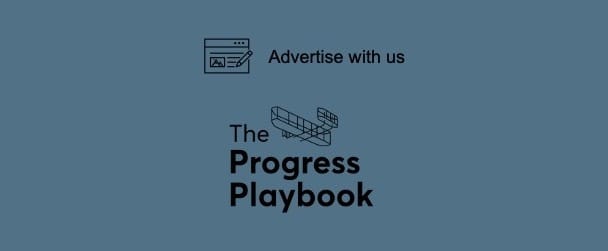- The Progress Playbook
- Posts
- Newsletter (copy 23)
Newsletter (copy 23)
Renewables cover 89% of Portugal's electricity needs in Q1

Happy Wednesday, dear reader.
Some good news to get things started:
Low-carbon vehicles now account for 77.6% of China's public transport system, the transport ministry says.
The UK's greenhouse gas emissions fell by 5.7% in 2023 to their lowest level since 1879, according to new Carbon Brief analysis.
Germany says it has shut 15 coal power plant units for good.
Know anyone else who’d be interested in signing up to this free newsletter? They can do so here.

Renewable energy technologies supplied 89% of Portugal’s electricity requirements in the first three months of 2024, according to grid operator Redes Energéticas Nacionais (REN).
That’s up from 73% in the same quarter last year, and 62% for the full 2023 calendar year, per REN data. The year-on-year increase was largely driven by a rebound in hydro output, although wind and solar advanced as well, driven in part by an ambitious procurement programme that started in 2019.
Hydroelectric facilities covered 47% of consumption in the first quarter, wind 31%, solar PV 6%, and biomass 5%. Fossil gas accounted for the remaining 11%. The solar figure excludes behind-the-meter rooftop installations, which show up in reduced demand for power from the grid.
- Read the full story here.

Europe’s largest economy is running a €23 billion ($24.9 billion) experiment to reach net zero by 2045 without destroying its energy-intensive industrial base.
The government of Olaf Scholz announced earlier this month so-called “climate protection contracts” to help companies in sectors like steel, cement and glass cover additional expenses incurred in using cleaner technologies, compared with conventional processes.
Under the program, applicants present proposals for the amount of support needed, with the bids offering the highest CO2 reductions for lowest price receiving funding.
The policy is similar to the contracts for difference (CfD) programmes that governments have used to help roll out renewables in many parts of the world.
- Read the full story here.
A note from The Progress Playbook…

We can help you reach new audiences and tell your brand’s story in a smart and concise way. Get in touch to find out more.

New technologies have a tendency to blindside. When colour TVs were introduced in the 1950s, for example, they seemed like a flop. The devices were expensive, programming was scarce, and after a decade on the market few homes had one. Then suddenly prices dropped, a ratings war ensued, and in just a few years most US households were watching The Jetsons in its futuristic palette.
A comparable shift is currently underway with electric vehicles, according to a Bloomberg Green analysis of adoption rates around the world. By the end of last year, 31 countries had surpassed what’s become a pivotal EV tipping point: when 5% of new car sales are purely electric. This threshold signals the start of mass adoption, after which technological preferences rapidly flip.
- Read the full story here.

Tangible progress on “green” steel production shows that we already have the tools needed to decarbonise the most fossil fuel-reliant sectors, The Carbon Trust says.
Steel manufacturing accounts for roughly 9% of global emissions and is considered “hard to abate” partly because of the extremely high temperatures required.
However, the era of near-zero emissions steel is arriving.
In Europe, Swedish company H2 Green Steel has started building a massive complex that will produce green hydrogen, iron, and steel. The hydrogen will be used to extract iron from its ore. That iron will then be fed into an electric arc furnace to make low-carbon steel.
This new production method, which has never been deployed at such scale before, reduces carbon dioxide emissions by 95% relative to conventional processes that rely on coke-fired blast furnaces, according to H2 Green Steel.
- Read the full story here.
Other articles you might find interesting:
Have any tips, ideas or feedback for us?
Please contact [email protected].
Follow The Progress Playbook on social media:




Copyright (C) 2023, The Progress Playbook. All rights reserved.Was this email forwarded to you? Sign up here to subscribe yourself.Want to change how you receive these emails?You can unsubscribe
Reply